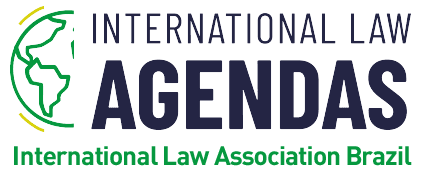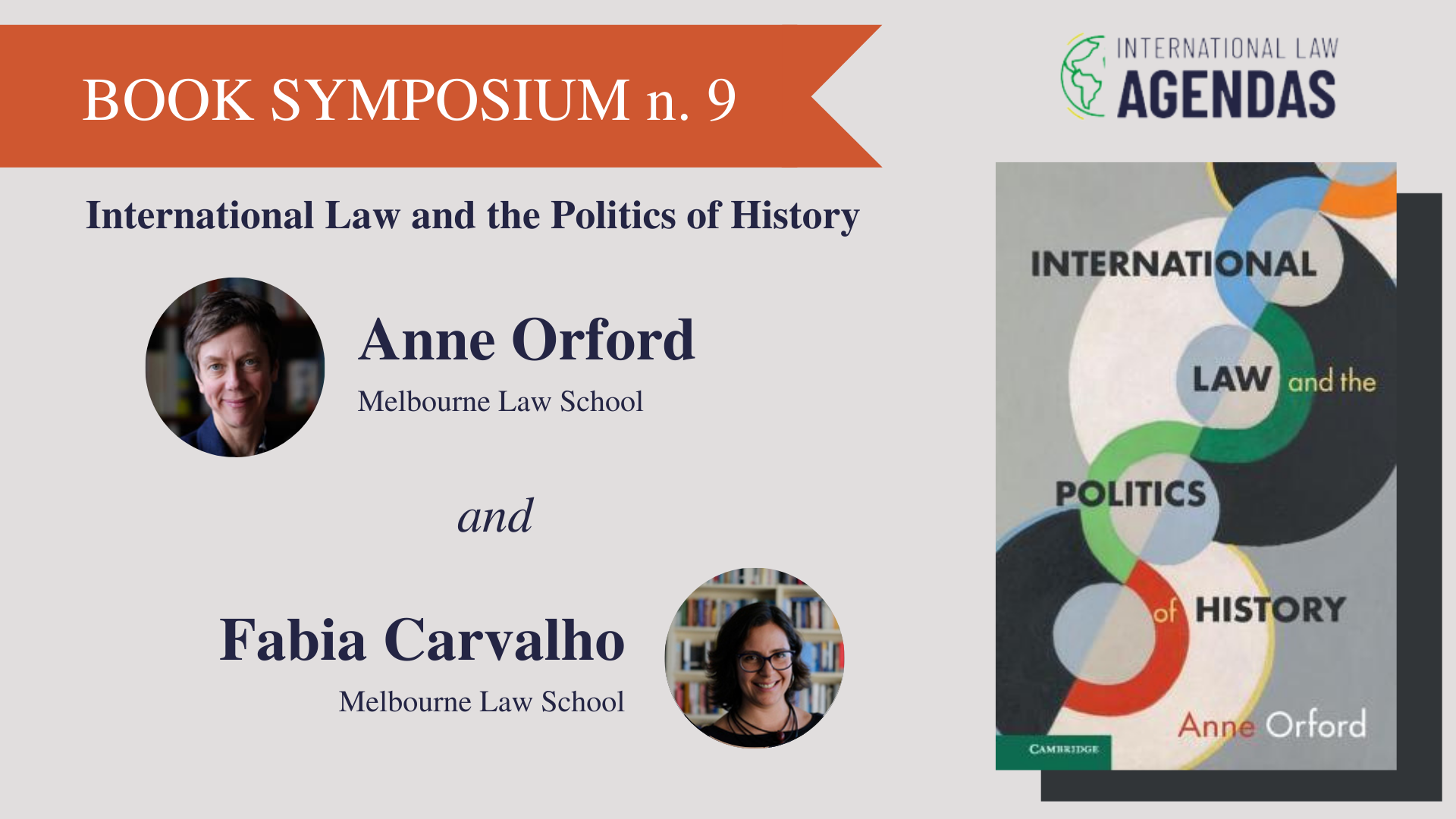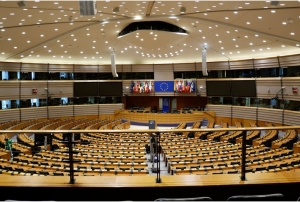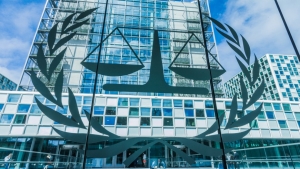International Law and the Politics of History presents a rigorous, detailed and precise account of the political stakes of the turn to history in international law since the end of the Cold War. Working as a postdoctoral fellow with Anne Orford while she developed many of the book’s ideas, it is great to see it come to fruition. This review will shed light on aspects of Orford’s book that have helped me think through my project about the history of international law in Latin America. In that regard, the book opens space for genuine interrogations about the writing of histories of international law without neglecting our position as international lawyers arguing from the present and aiming to illuminate challenges and opportunities experienced right here and right now. As Orford clarifies in the book, ours is not an impartial engagement with the past.
Arguing that past texts, concepts, and practices have always been a fundamental part of the argumentative practice of international law, Orford persuasively challenges the role of empiricist historians as the bearers of ‘an objective ground for determining what a past legal text really means, what an international institution was really designed to achieve, or what the field of international law is really for.’ (p. 5). In other words, while assessing the encounters between international law and history since the post-Cold War period, the book explores the complex character of having empiricist historical methods offering ‘professional and impartial interpretations of past texts, events, or concepts that can correct or complete the misuses of history in international legal argument.’ (p. 71). In this setting, formalist interpretations of international law find a renewed space in the field with such historical truth and correctness claims.
The book addresses in detail the methodological debates that have marked the turn to history in international law in the late twentieth century. However, as Orford has recently contended, her engagement in questions of method does not occur in a vacuum or just for the sake of it: ‘I always do it [engage in questions about method] because I have a problem that I am trying to resolve. I would only open up new methodological questions because I am trying to think about something, and I am blocked.’ As she has explained, her interrogations in another book project about the ‘complicated ways in which international law has been involved in shaping what the state can be and whom it can represent’, both in the past and present, opened space for more profound reflections about how lawyers engage with the past, leading to the writing of International Law and the Politics of History.
To Orford, historians and lawyers are not part of a ‘“shared enterprise” that should be conducted according to empiricist historical rules’ (p. 106). International lawyers use past materials to assemble legal arguments with more ‘openness, ambiguity, and capaciousness’ (p. 178). Aiming at complicating the image of lawyers that Orford argues historians have in mind, she offers a detailed and rigorous description of the complex relationship between international legal academia and the world of practice, the various roles occupied by international lawyers in these domains (not just as the moralist judge or scholastic, as she describes the historians’ fantasised vision of the lawyer), and ‘a far broader range of orientations and arguments about past material’ (p. 182) in addition to metaphysical and formalist orientations.
Here lies one of the main contributions of the book to a Brazilian or Latin American reader: a robust and precise description of international law as an argumentative practice that goes beyond the common-sensical definition that has international law as a coherent and complete system of rules governing the relation of states and other international legal subjects. Even if critical work has been carried out by (domestic) lawyers in Brazil and Latin America, the field of international law remains disconnected from critical reflections. ‘The idea that international law is historically situated or political’ (p. 15) does not fully integrate the argumentative practice of international law in our region.
It is worth noting that the methodological debates explored in the book are related to a particular (and small) epistemic community, somehow distant from the ways in which international law is experienced in Latin America both in academia and practice. Orford makes it clear stating that ‘many of the historians who have since developed an interest in international law are based in the United States’, mentioning the fact that these debates are related to ‘the scholarship of a small group of international lawyers whose work speaks to US historians’ (p. 43). Still, her detailed account of the role of international lawyers in using the past to make legal arguments can open space for productive reflections in the Brazilian and Latin American contexts, in which international law is still seen as neutral, objective, and apolitical. [1]
These points help the reader grasp the reach of the main argument in the book. Assessing the encounter between empiricist historical methods and international law does not limit itself to describing a mode of disciplinary rivalry (and defending law’s position in this regard). As Orford put in the introduction, this encounter ‘raises a set of issues that have a longer provenance and that go to the heart of questions around the role of lawyers in contemporary international politics.’ (p. 9). Here distinctive aspects of Orford’s scholarship can be highlighted. First, her interdisciplinary approach is not based on methodological truth claims imposed by one discipline over another. Hers is a much more experimentalist, curious, non-dogmatic, and pluralist mode of interdisciplinary engagement. Experimentalism and pluralism do not mean that anything goes in terms of method in Orford’s book and scholarship more broadly. Her accurate description of how lawyers assemble international legal arguments shows methodological rigour in describing and assessing the field’s argumentative practice. The problem lies in having historical truth claims closing down productive and, most importantly, diverse avenues for critical work in international law.
Second, Orford strongly challenges the view that puts law as an unprofessional field of knowledge in need of scientific amelioration, asserting the virtues of legal amateurism instead. Borrowing this idea from Annelise Riles, Orford praises ‘the many roles of the international law scholar and the many uses we make of the past’ (p.15), without reducing such an experience to a single standard of correctness in the making of international legal arguments.
Accordingly, in the introduction to the Oxford Handbook of the Theory of International law, Anne Orford and Florian Hoffmann have affirmed the methodological plurality in the argumentative practice of international law, arguing that ‘International legal theorists have largely favoured methodological bricolage, drawing on a range of disciplines and vocabularies to construct specific arguments rather than to build grand theory’. The attempt by empiricist historians to offer a correct way to engage with the past oversimplifies the richness and variety of the argumentative practice of the international law scholar.
Last but not least, Orford’s scholarship is enriched by interrogations about the material conditions related to the move across time and space of legal concepts, practices and interpretations. In her study about the battle for the state, Orford makes it clear that ‘A focus on the material question of securing access to food direct us to a set of practices, concepts, laws, and actors which are often not included in the more idealist histories of international law’. Similarly, it is not possible to limit the book to an idealist approach. Chapter 2 situates the turn to history in international law ‘within a broader political, social, economic, and institutional context’ (p.18).
The book ends with a call for international lawyers to resist the turn to history as neoformalism, to resist the attempt of having other disciplines saving us from our methodological plurality and legal amateurism. Contending that international law is made by argumentative practice and not found out there, Orford calls for the need to take responsibility for making international legal arguments. Her take on the role of international lawyers in making international law brings a fundamental dimension of choice and clarity about our own politics of international law, ‘knowing and fully accepting that everything about that is contingent.’ (p. 320)
From this view that there is no external point of reference but our own (responsible) engagement to international law, she asserts that ‘The recognition that international law is politics all the way down is not the end of the story, but the beginning of a new chapter.’ (p. 320). Another essential feature of Orford’s critical scholarship is this openness and optimistic stance. It is related to how she sees the relationship between the method, practice and theory in international law. Instead of leaving us in the dark with her critical reading of international law, her work aims to open space for new experiments in the argumentative practice in the field. If contingency is part of making international legal arguments, there would be room for a plurality of uses of international law. ‘We just keep creating the closed world over and over again, and I would always be pushing to open it.’
In this setting, with clarity about our choices and their implications, this view of international law may be a productive vocabulary to open space for new political imaginations for Brazil in the current ‘antiglobalism’ moment and Latin America’s extreme inequality and poverty. To be sure, international lawyers and historians of the international will be interested in reading International Law and the Politics of History. Scholars from the field of International Relations can also find it a productive reading, considering the growing legal and institutional character of international politics today. Moreover, lawyers interested in legal theory and jurisprudence will find in the book an accurate exploration of the deep theoretical questions related to the struggles ‘for the meaning of law’ (p. 10). Accordingly, one of the book’s main contributions is Anne Orford’s substantive engagement with the argumentative legal practice, without convenient detours or shortcuts to other disciplines. Hers is an interdisciplinary approach that has law at the centre of the scholarly endeavour, taking account of the complexity and richness related to the making of the meaning of international law.
________________________
[1] For a debate concerning the Brazilian context, see Badin et al. (Eds.), Direito Internacional: Leituras Críticas. São Paulo: Almedina, 2019. For the Latin American context, see the special issue by Revista Derecho del Estado about legal teaching, international law and imperialism in the region, a publication by the REDIAL Project (Repensar la educación en derecho Internacional en América Latina), a collaborative project that interrogates contemporary teaching practices in the field in our region.
-
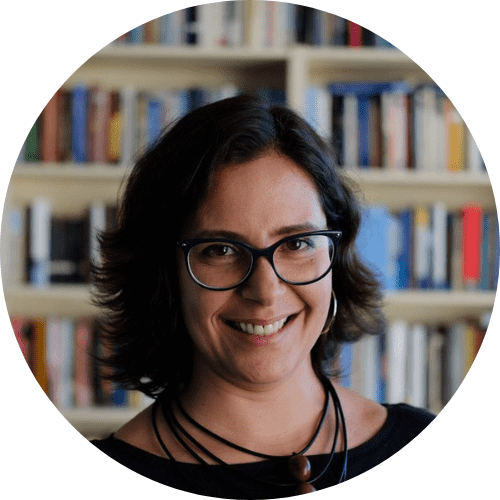
Postdoctoral fellow with the Laureate Program in International Law at Melbourne Law School (2017-2021). Holds a PhD (2012) and an LLM (2006) in International Law with the University of São Paulo Law School.
